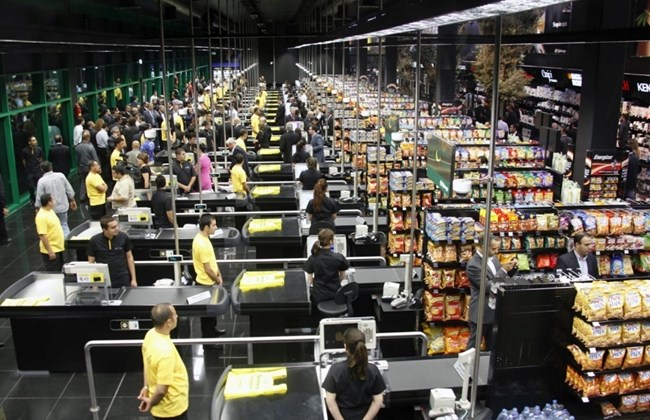jassemajaka@gmail.com
Consumer goods hold steady as fuel price falls
BEIRUT: Consumer prices in Lebanon have remained unchanged despite a marked decline in fuel costs following a drop in international oil prices.
The Daily Star / Dana Halawi
Dented by a recent decision taken by the Organization of Oil Exporting Countries to maintain its output ceiling in an oversupplied market, the price of crude has plummeted by around 45 to 50 percent since last June, resulting in the price of fuel oil falling by 30 percent from LL36,000 to LL25,000. The decline in crude outpaces that of oil derivatives due to the additional costs of refining, transportation and other expenses.
However, despite the decline in the price of gasoline, transportation fees, for example, remain steady.
“Our price has been fixed at LL2,000 … even after the hike in the price of 20 liters of fuel oil to LL37,000 in 2011,” said Abdel Amir Najdi, head of the syndicate of taxi drivers.
Najdi argued that drivers would lose around LL20,000 a day if they drop their prices by LL500, especially that consumer prices in Lebanon have remained unchanged.
“Drivers used to buy meat at LL7,500 per kilo but now it has climbed to no less than LL18,000 per kilo,” he said.
“Consumer prices must go down to enable these drivers to support their families,” he added.
Najdi said that even if drivers decided to reduce their prices they would not get any other kind of support in return.
He believes that taxi drivers should consider cutting their prices to LL1,500 only when the price of 20 liters of gasoline drops to LL18,000.
According to a statement issued by the Energy Ministry Wednesday, the most recent reduction in the price of fuel set 20 liters of 95 octane gasoline at LL24,300 and 20 liters of 98 octane gasoline cost LL25,000. Fuel oil was priced at LL17,900, diesel at LL18,100 per 20 liters, while the price of kerosene was set at LL19,400.
Meanwhile, Zouhair Berro, president of the Lebanese consumers association, argued that consumer prices did not go down because of a lack of control by the Economy Ministry.
“The ministry controls a few items only such as chicken, bread, gas and telecoms service prices but they ignore other commodities,” he said.
Economy and Trade Minister Alain Hakim has repeatedly vowed to better enforce consumer protection regulations and launched earlier this year the “Consumer Protection Lebanon” mobile application to let citizens report violations.
Berro argued that the prices of goods in the Lebanese market are not subject to change based on demand and supply.
“When prices increase internationally, local prices move upward as well but when international prices drop we do not witness the same decrease in our market,” he said.
“With the presence of exclusive dealerships, our country will always be considered among the most expensive in the region,” Berro added.
Berro also attributed high consumer prices to the absence of the national council for consumer protection. “This council hasn’t been functioning properly for the past 10 years and it needs a decision by the Economy and Trade Ministry to activate it,” he said.
Kazem Ibrahim, head of the bakeries association, said that the Economy Ministry was studying the possibility of reducing the price of bread. “Of course it is not in our interest to lower the price of bread but if this is the right of citizens then we will do that for sure,” he said.
Likewise, Jassem Ajaka, economics affairs adviser to the minister of economy and trade, said the ministry was about to finish its study concerning bread and it would soon meet with the bakeries association to discuss this issue.
The ministry is also planning meetings with merchants to negotiate lowering profit margins. “We are in a free economy and the ministry cannot impose any specific prices on merchants, especially that the trade sector contributes around 16 percent of GDP and we want to protect it,” Ajaka said.
“But if merchants reduce their profit margins they will benefit because consumers will buy more.”


